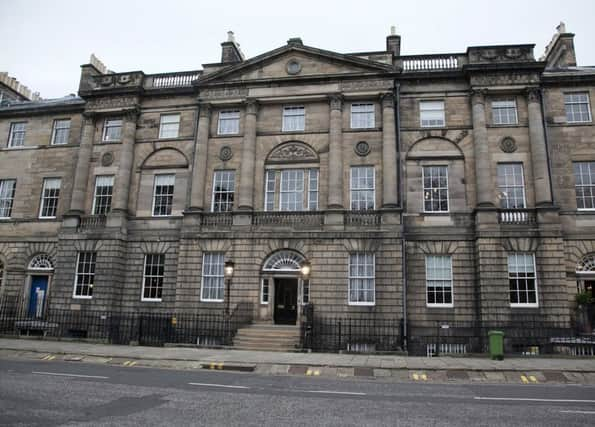First Minister's residence Bute House '˜needs £300k of repairs'


Bute House, a striking 18th century town house in Charlotte Square, was closed to staff in October last year after routine monitoring revealed urgent ceiling repairs were required in the A-listed building.
Nicola Sturgeon has since been staying overnight in a hotel, when her schedule requires, while meetings of the Scottish Cabinet have been taking place at St Andrew’s House.
Advertisement
Hide AdAdvertisement
Hide AdThe list of repairs drawn up for Bute House by Historic Environment Scotland (HES) is believed to include damp in the basement and problems with the stairwell cupola, the Mail on Sunday reported.
New carpets are needed throughout the building, the kitchen needs to be re-fitted and the second-floor study is due for redecoration, according to the document released under Freedom of Information laws.
In April last year the document shows HES requested £287,000 for “household and material costs”.
Bute House was one of the final projects overseen by celebrated Georgian architect Robert Adam and is a key part of the New Town World Heritage Site.
Advertisement
Hide AdAdvertisement
Hide AdNeil Baxter, the former secretary of the Royal Incorporation of Architects in Scotland, told The Scotsman in October that the building and the rest of Charlotte Square were of the “highest architectural importance to Scotland and the wider world”.
“There is no question that the Georgian buildings that make up the New Town, including Bute House, are of special importance,” he said.
“But Charlotte Square in particular, because of the work of Robert Adam, is something unique.
“Old buildings do shift, so if cracks are discovered they are quite right to close the building to undertake repairs.”
Advertisement
Hide AdAdvertisement
Hide AdThe property which is owned by the National Trust for Scotland, was formerly the official residence of the Secretary of State for Scotland.
It was handed over for use by the First Minister following devolution in 1999.